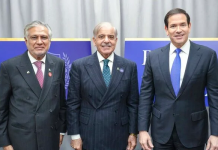Despite the periods of stress, the Indus Water Treaty (IWT) is well known as one of the most successful transboundary water-sharing mechanisms in the World. Recently it has entered another phase of ‘difference of opinion’ between the two parties to the treaty, India and Pakistan. The matter relates to individual preferences concerning dispute resolution channels.
The IWT has an inbuilt mechanism for dispute settlement that operates at three levels: meetings of Indus Commissioners (appointed by India and Pakistan), deliberation by a Neutral Expert (NE) on technical aspects only, and unlimited jurisdiction of the Permanent Court of Arbitration (PCA).
The NE is a one-person tribunal, hence easy to influence. The defending side can continue building the disputed structure while the NE takes up the complaint. By the time NE announces its verdict, the dam is, generally, near completion. India salvaged its Bhagliar dam by influencing the NE to ‘let it stay for the sake of good governance’ as ‘it was almost complete’. The NE has circuitous procedures, spanning far beyond the usual completion time of typical dams that India plans to build.
The PCA is a three-person court, hence difficult to influence. Once a complaint is lodged, right on the first hearing further construction on the challenged facility is stopped by the PCA, which is the right way. India wants to avoid adjudication by the PCA to avoid the stoppage of construction on challenged dams.
Pakistan is situated as a natural lower riparian in the Indus Water System. As a consequence, Pakistan is more likely to be a complainant in the cases related to upstream Indian structures which may either cause a significal change in the downstream water flow patterns or incorporate a significant water storage facility to gain control over the downstream release of water in terms of quantity and flow. Keeping these factors in mind, Pakistan has a natural preference for dispute settlement through Permanent Indus Commissioners and then the PCA. Since 2016. India has already stopped the meetings of Indus Commissioners. Now it wishes to bypass the PCA, and it is not without a sinister purpose. This is a part of Indian design to exert multisectoral squeeze to achieve strategic ascendency over Pakistan.
In 2016, Pakistan asked the World Bank (which facilitated the IWT related negotiations) to facilitate an ad-hoc Court of Arbitration to investigate its concerns about the designs of the two dams, the Kishenganga and Ratle Hydroelectric Projects. Pakistan argued that these projects were not in consonance with the provisions of the IWT. Six weeks later, India asked for the appointment of a Neutral Expert for the same purpose. The World Bank also appointed a Neutral Expert as well. India objected to the jurisdiction of the PCA, while at the same time appointed its arbitrators.
In response to India’s objection, Pakistan took up the case for adjudication of PCA’s jurisdiction, and India boycotted the proceedings. The petition was won by Pakistan. The PCA also ruled that India’s non-appearance in the proceedings will not bar competence to continue the proceedings, issue orders, or render binding decisions. Even Before the Kishenganga dispute, PCA tribunals and the ICJ have ruled in various verdicts that the non-appearance of a Party in the proceedings would not affect the validity of its judgment, and the absent party remains bound by the eventual judgment.
The PCA emphasised the need for hydro-diplomacy in resolving such conflicts while encouraging treaty adherence. Soon after this verdict, India responded by indefinitely suspending the regular biannual meetings of the Indus Water Commissioners.
Now India finds itself in jeopardy, the binding verdict of the PCA will start coming in due course, hence India is struggling to riggle out of the implications of such decisions by the PCA. To accomplish this, India has written four formal letters to Pakistan, in quick succession, to initiate Indus Water Treaty (IWT) discussions.
India’s stated motivations for revisiting IWT are “fundamental and unforeseen changes in circumstances including change in demographics; environmental issues warranting to accelerate the development of clean energy, etc.” However, the prominent Indian newspaper ‘The Hindu’ has recently reported that India’s “prime” focus is on reviewing the treaty’s ‘dispute settlement system’.
Pakistan must exercise caution while entering into parleys with India on the IWT issues. The proverbial camel may simply be posing to put its head in the tent. Any engagement with India on the IWT matters, beyond the Indus Commissioners’ purview should be under the auspices of the World Bank. The IWT adequately safeguards Pakistan’s water rights. Any tampering with it would mean reverting to a pre-1960 conflictual situation. If so, the IWT may become another hotspot between India and Pakistan. The spokesperson for Pakistan’s Ministry of Foreign Affairs has aptly responded to India’s fourth letter on 19 September: “The two countries have a process of Indus Commissioners, and we feel that all matters concerning this treaty can be discussed in this mechanism”.
Air Commodore Khalid Iqbal (Retd) is Director at the Centre for Aerospace and Security Studies (CASS), Lahore Pakistan. He may be reached at [email protected]
















